-
Irish Taosiech (prime minister) Brian Cowen resigned as leader of the government Fianna Fail party on January 22. The move came in the midst of a political crisis caused by the Cowen government accepting an 85 billion euro bailout package from the European Union and International Monetary Fund. The package will be accompanied by savage spending cuts that will drastically deepen the austerity imposed on the Irish people in response to the financial crisis that hit the southern Irish state in 2008.
-
David Kato Kisule, described by The New York Times on January 28 as the father of Uganda’s lesbian, gay, bi-sexual and transgender rights movement, was murdered in his home on January 26. Kato was advocacy officer for Sexual Minorities Uganda. The killing came as increasingly violent homophobic tensions continued to escalate in the east African nation. Kato, aged 46, was bludgeoned to death with two blows to the head from a hammer in his Kampala home. The attack was carried out by one or more male attackers.
-
 Cuban Revolution leader Fidel Castro said on February 1 that not even the support of the United States will be able to save the Egyptian government. Likewise, he pointed out that for the first time the world is simultaneously facing three problems: climate crises, food crises and political crises. * * * Reflections by Fidel Castro: Mubarak's fate is sealed Egyptian President Hosni Mubarak’s fate is sealed, not even the support of the United States will be able to save his government.
Cuban Revolution leader Fidel Castro said on February 1 that not even the support of the United States will be able to save the Egyptian government. Likewise, he pointed out that for the first time the world is simultaneously facing three problems: climate crises, food crises and political crises. * * * Reflections by Fidel Castro: Mubarak's fate is sealed Egyptian President Hosni Mubarak’s fate is sealed, not even the support of the United States will be able to save his government. -
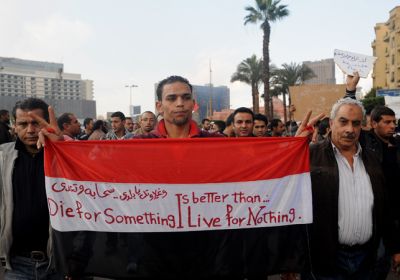
All those scenes from Cairo of mass demonstrations look like the perfect expression of the big society. So we can only assume British PM David Cameron wants us to try something similar here. It would certainly encourage more people to take an interest in politics.
-
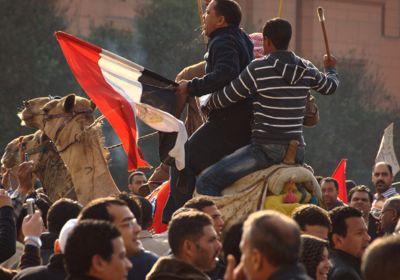
After as many as 2 million people took over Tahrir Square and the streets of Cairo, with millions more across Egypt, on February 1 to demand on end to the US-backed dictatorship of Hosni Mubarak, the regime responded with a violent assault on protesters continuing to occupy the square.
-
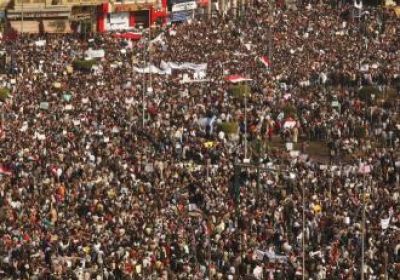
International Socialist Review editor Ahmed Shawki reports from Cairo on the latest mass protests against Hosni Mubarak--and what the future holds for Egypt's uprising.
-
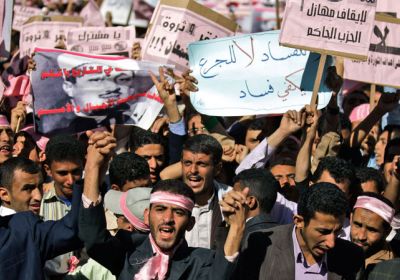
Al Jazeera.net reported on January 29 that new protests had erupted in the Middle Eastern nation of Yemen, which sits at the bottom of the Arab peninnsular, demanding an end to the regime of President Ali Abdullah Saleh. The site reported on January 28 that thousands had also taken to the streets in anti-government protests in Jordan, with people angry over price rises and unemployment.
-
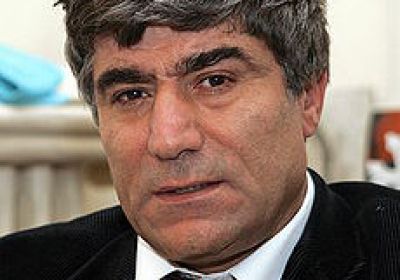 Thousands of people marched through the streets of Istanbul on January 19 to commemorate the fourth anniversary of the killing of journalist and human rights activist Hrant Dink. Dink’s murder symbolises the rising wave of nationalism and chauvinism in Turkey in recent years. Dink was an Armenian-Turkish journalist, human rights activist and a prominent member of his community. He was 51-years-old when he was murdered by a 17-year-old right-wing assassin on January 19, 2007 — gunned down outside the office of Agos, a bilingual newspaper that he edited in Istanbul.
Thousands of people marched through the streets of Istanbul on January 19 to commemorate the fourth anniversary of the killing of journalist and human rights activist Hrant Dink. Dink’s murder symbolises the rising wave of nationalism and chauvinism in Turkey in recent years. Dink was an Armenian-Turkish journalist, human rights activist and a prominent member of his community. He was 51-years-old when he was murdered by a 17-year-old right-wing assassin on January 19, 2007 — gunned down outside the office of Agos, a bilingual newspaper that he edited in Istanbul. -
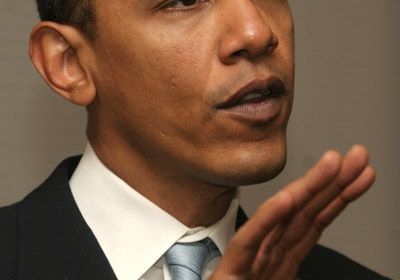 They are calling it Obama’s PATCO. US President Barack Obama is proposing a two-year wage freeze for 2 million federal workers. When then-president Ronald Reagan fired 13,000 striking Professional Air Traffic Controllers Organization (PATCO) members in August 1981, he sent a signal to other employers that it was open season on unions. Now, local and state governments will use the president’s position to justify their own layoffs and wage freezes. Private industry will do the same.
They are calling it Obama’s PATCO. US President Barack Obama is proposing a two-year wage freeze for 2 million federal workers. When then-president Ronald Reagan fired 13,000 striking Professional Air Traffic Controllers Organization (PATCO) members in August 1981, he sent a signal to other employers that it was open season on unions. Now, local and state governments will use the president’s position to justify their own layoffs and wage freezes. Private industry will do the same. -
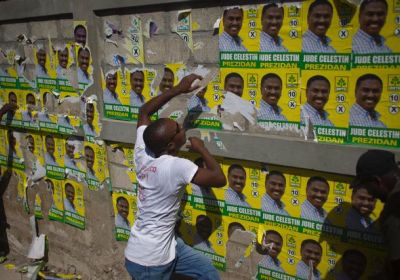 In the lead-up to the one-year anniversary of Haiti’s January 12, 2010 earthquake, a brutally frank account of the plight of its people was delivered by a highly placed diplomat. Ricardo Seitenfus, the representative to Haiti of the Organization of American States, delivered a hard-hitting assessment of the foreign role in that country in an interview in the December 20 Swiss daily Le Temps. Seitenfus, a Brazilian, was immediately recalled from his posting.
In the lead-up to the one-year anniversary of Haiti’s January 12, 2010 earthquake, a brutally frank account of the plight of its people was delivered by a highly placed diplomat. Ricardo Seitenfus, the representative to Haiti of the Organization of American States, delivered a hard-hitting assessment of the foreign role in that country in an interview in the December 20 Swiss daily Le Temps. Seitenfus, a Brazilian, was immediately recalled from his posting. -
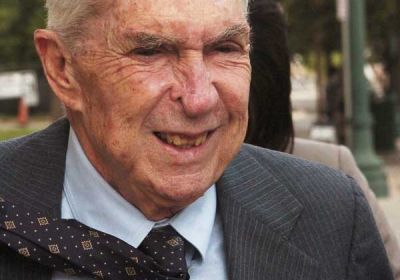 The trials of the creator of WikiLeaks, Julian Assange, and of international terrorist Luis Posada Carriles began with less than a 24-hour difference on January 10 and 11. One took place in London and the other in El Paso, Texas. While the champion of freedom of information, Assange, was being accused by US officials of the very serious crime of terrorism, the confessed terrorist, Posada, was simply tried for immigration law violations.
The trials of the creator of WikiLeaks, Julian Assange, and of international terrorist Luis Posada Carriles began with less than a 24-hour difference on January 10 and 11. One took place in London and the other in El Paso, Texas. While the champion of freedom of information, Assange, was being accused by US officials of the very serious crime of terrorism, the confessed terrorist, Posada, was simply tried for immigration law violations. -
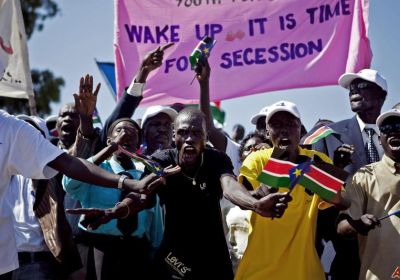 The January 9-15 referendum on self-determination in south Sudan looks certain to result in the division of Sudan into two countries. About 96% of the 3.9 million registered voters took part, well exceeding the required 60% turnout. The final result will be announced in February. But with 80% of the vote counted, the South Sudan Referendum Commission reported a landslide vote of almost 99% in favour of independence. The Republic of South Sudan is expected to be officially declared in July.
The January 9-15 referendum on self-determination in south Sudan looks certain to result in the division of Sudan into two countries. About 96% of the 3.9 million registered voters took part, well exceeding the required 60% turnout. The final result will be announced in February. But with 80% of the vote counted, the South Sudan Referendum Commission reported a landslide vote of almost 99% in favour of independence. The Republic of South Sudan is expected to be officially declared in July.
World
World